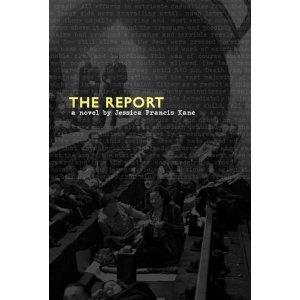The Report
Jessica Francis Kane
In 1943, in the thick of World War II, air raids over London were so common that the residents of the close-knit neighborhood of Bethnal Green no longer found it remarkable to gather up family and bedding and head into the tube station for shelter. On the evening of March 3, however, something went terribly wrong – instead of reaching safety, more than 170 people were crushed to death as they descended into the station’s entryway. For a community growing sadly accustomed to losing sons in battle and having their homes and buildings decimated by bombs, this was a different, incomprehensible kind of loss. The Report is the fictionalized account of Laurence Dunne, the real investigator assigned to the case and an exploration of the impact of this disaster on the affected families; it is also a consideration of the elusive meaning of truth.
The Report offers a poignant portrayal life in London during wartime – the frequent visits to shelters, the severity of lifestyle (threadbare clothes, the novelty of finding fruit at the store, government suggested meal plans, living under blackout orders), the struggle to go on during a time of profound loss, the constant tension of waiting for bombs to fall, a different kind of tension when Jewish refugees arrive in an insular Christian community – but I was especially moved by the larger question of whether explanation and understanding are the same thing. It was intriguing to consider Laurie Dunne’s reasons for deciding what to include, and what to leave out of the final document. A quietly suspenseful novel, this story and its characters grew and grew on me, especially as some long-buried truths begin to surface. I recommend it highly, along with this fascinating article by the author at The Morning News considering the limitations of the category of historical fiction and her meeting with current-day Bethnal Green residents.
-Jennifer Messner
